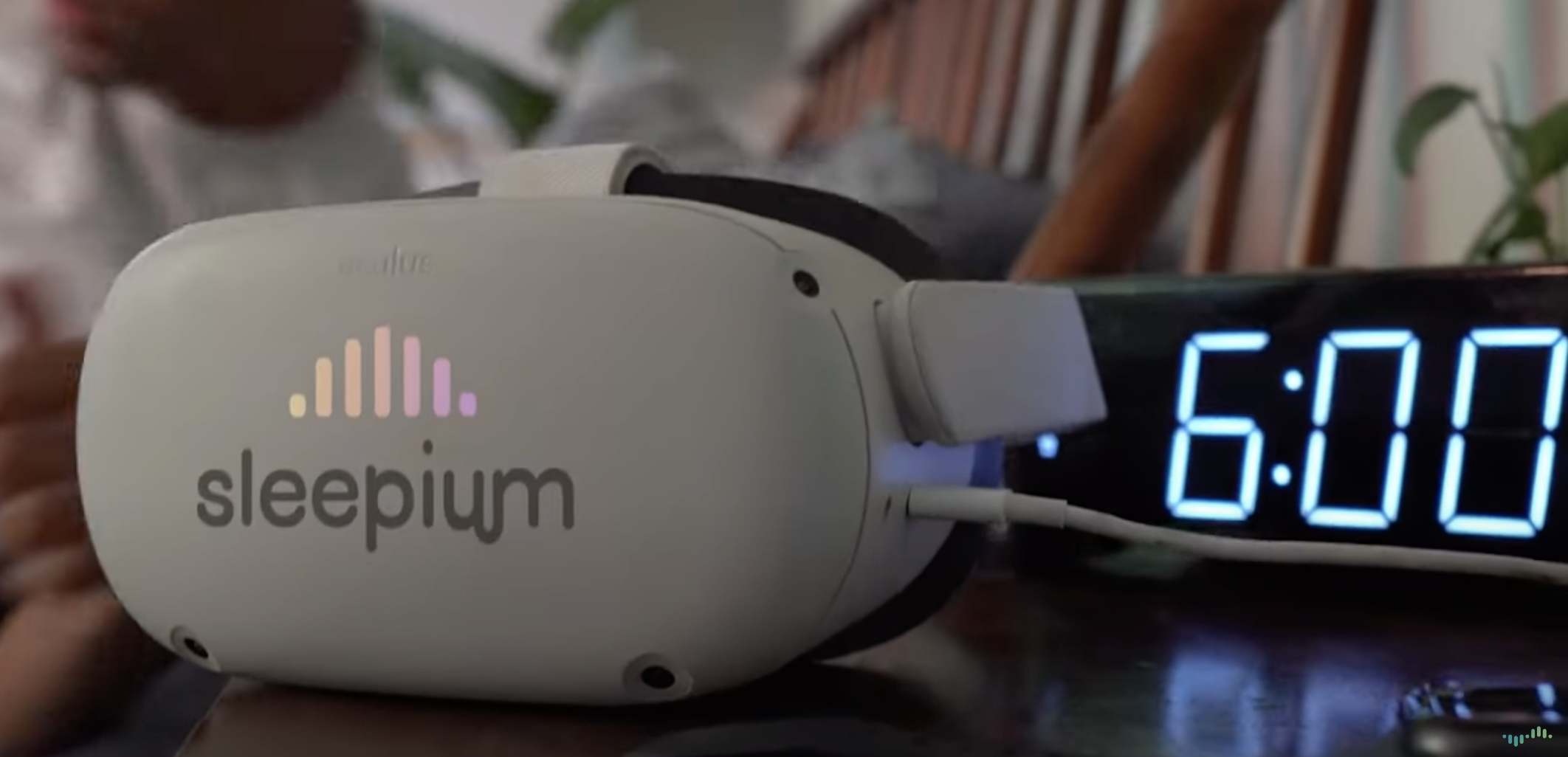VR for Insomnia
A new study revealed that digital therapeutic interventions outperform traditional CBT-I and medications in reducing Insomnia Severity Index scores.

Approximately 10% of adults suffer from chronic insomnia, a condition linked to diminished life quality, increased fatigue, cognitive challenges, and a higher risk of illnesses. While Cognitive Behavioral Therapy for Insomnia (CBT-I) is the preferred treatment, access to trained clinicians is limited, not meeting the high demand.
In this context, digital solutions like Healium could offer a novel angle in addressing this widespread sleep disorder. A recent study published in Sleep, Volume 45 examined the effectiveness of digital therapeutics, including Healium, for those suffering from insomnia.
Virtual Reality for Insomnia: Study Overview
The study employed a Bayesian network meta-analysis to meticulously compare the efficacy of digital therapeutics against established insomnia treatments. It assessed changes in the Insomnia Severity Index (ISI) and remission rates, providing a comprehensive evaluation of treatment effectiveness.
The Results:
Key findings reveal that digital therapeutics notably outperform CBT-I and placebo in reducing ISI scores, and that they also had the highest probability (56%) of being the most effective treatment based on ISI mean change from baseline. This signals the effectiveness of digital therapeutics in mitigating insomnia symptoms.
Additionally, digital therapeutics demonstrated higher remission rates, and out of the studies that reported the proportion of ISI remitters, only the digital therapeutics showed a statistically significant difference in remission vs. placebo.
Implications for Insomnia Treatment:
These findings underscore the potential of digital therapeutics as a highly accessible and efficient alternative to conventional treatments. The study suggests a promising future for digital therapeutics in insomnia therapy, highlighting its ease of use and broad accessibility.
The Science Behind Healium
Virtual Reality for Anxiety Reduction
Frontiers in Psychology published a study showing a reduction in anxiety after a 4 minute Healium experience. The study used quantitative EEG to measure the brain’s reaction. Read the full manuscript below.
VR for Positivity
The Journal of Neuroregulation published a study on Healium’s effect on a specific brain pattern associated with feelings of positivity.
VR Changes Mood Before Blood Donations
A study published in the Scholarly Journal of Psychology and Behavioral Sciences looked at Healium’s ability to quickly improve mood and reduce tension before blood donations.
VR for Empathy
This case study used quantitative EEG to examine changes to the anterior cingulate when watching a Healium virtual reality film.




